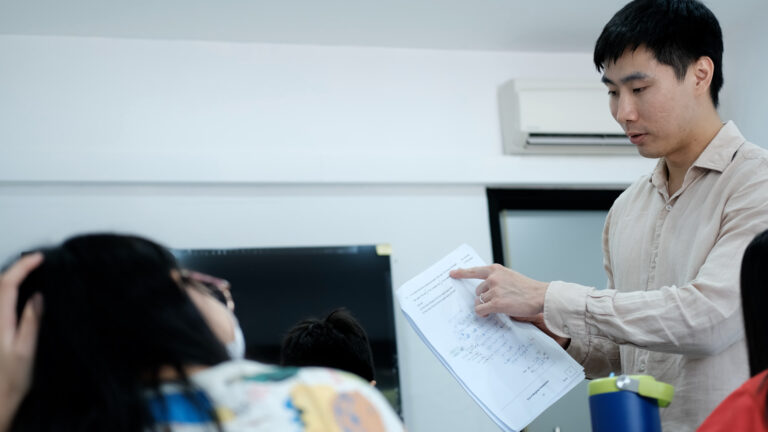How can you motivate your child to learn independently, and to be happy about their learning?
We’re sure that as a parent, this is a big concern when it comes to preparing your child for the PSLE. While you do not want to strain your relationship with your child, it is also important that your child does well for the all important PSLE in order to get into a good school of their choice.
Understanding this concern that you have, we’ve decided to dedicate this blogpost to help parents discover better ways in motivating their children to learn and excel at their studies.
We’re sure that as parents, we’ve all heard of the carrot and stick approach. But how effective is this approach really? And how do we execute it in such a way that it aids insead of hinders our child’s growth?
The Carrot
What kind of carrot should you use to motivate your child? The carrot can vary from money and toys to praise, recognition and appreciation. Regardless of the carrot you choose to dangle, it is important to also explain the rationale behind the reward. For example, you can say ‘ Child, Mummy and Daddy wish that you can do your best and do well in this test. If you do well, we will reward you with your favourite toy. Even if you don’t do well, Mummy and Daddy will always love you if you have tried your best for the test.’ Saying this reaffirms your unconditional love for your child, while allowing your child to understand that doing well and trying their best for a test is something desirable. This way, when your child grows older and more independent, they will be self-motivated to try their best in school and to do well for their examinations. You should view the carrot as a form of positive reinforcement to induce good behaviour, which your child will carry into adulthood.

For example, our June Holiday Programme quiz composed of questions from English, Chinese, Mathematics and Science subjects saw a high participation rate of 190 students, as our TTA students raced to answer the questions as well as possible, in hopes to win a prize. While only the top scorers get the prize, the prize acts as a positive reinforcement to motivate students to recap whatever they had learnt during the June Holiday Programme, and is always an effective way to get our students to reflect and remember their learnings from the programme.
The Stick
As the approach suggests, a parent cannot only dangle carrots to reward good behaviour, but should also know when to dole out appropriate punishment for bad behaviour. A stick can come in the form of reprimand, or taking away what your child takes for granted, such as screen time, and their favourite toys. Reasoning is always important, especially when it comes to the stick, as your child has to understand what exactly they have done wrong, and how they should have performed otherwise, in order for the stick to take effect on their future behaviour.
Striking a Balance
Every child is different, so it is important to know what type of motivation resonates better with them, and how much reward or punishment you should give. Ultimately, it is important to strike a balance, so that the carrot and stick approach can help with your parenting, but is not so overused that your child is only motivated by the 2 ends of the spectrum. Set boundaries, rules and expectations with your child, and allow them to understand these with open communication along with the carrot and stick approach. Just as how we motivate our students with rewards during quizzes, in order to push them to do their best during lessons, help your child grow with your support and love, so that they can be the best versions of themselves.




